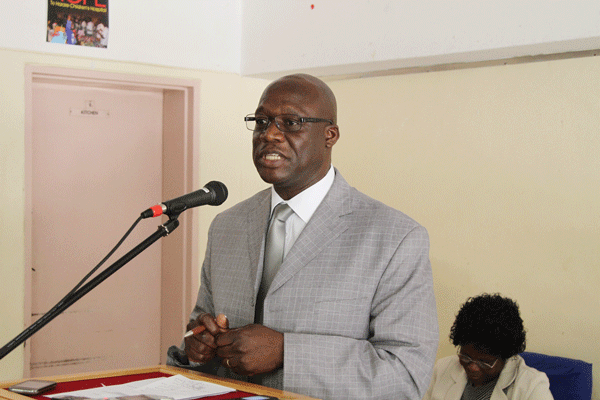
THE Parliamentary Portfolio Committee on Health and Child Care yesterday called for the transfer of the Health Levy Fund from the Finance ministry to an independent body in the same manner in which the Aids levy is administered by the National Aids Council. BY VENERANDA LANGA
The issue was raised by the committee when Health ministry secretary Gerald Gwinji appeared before the committee to speak on the 2018 health budget.
Gwinji had disclosed that the available amount from the Health Levy Fund as at September 30 was $18 million, although it was yet to be disbursed.
Parliament fears that the money from the Health Levy Fund, which is a government levy of 5% on every dollar purchase of airtime and mobile data, might end up being diverted for other programmes other than funding health.
“Disbursements of the funds shall be done upon requests sent to the Ministry of Finance, and the ministry has continuously faced challenges to secure cash from the Ministry of Finance to support the releases that would have been availed,” Gwinji said.
Parliamentary Portfolio Committee on Health chairperson Ruth Labode said there was need for clarity on exactly how much is given to Treasury from the Health Fund Levy, as the figures given continued to differ.
“As a committee, we need to call cellular phone service providers like Econet, NetOne and Telecel to tell us exactly how much comes from the levy. I refuse that the Health Levy Fund should stay within the Ministry of Finance. It should be an independent fund like the Aids levy,” she said.
MPs said they wanted to know where the other 5% of the health levy goes because the Finance Act says excise duty on airtime shall be 10% of the sale of the value of airtime, 5% of which shall be designated as a Health Fund Levy for the purchase of drugs and equipment for hospitals. The other 5% is not explained.
- Chamisa under fire over US$120K donation
- Mavhunga puts DeMbare into Chibuku quarterfinals
- Pension funds bet on Cabora Bassa oilfields
- Councils defy govt fire tender directive
Keep Reading
Gwinji told the committee that for 2018, his ministry had bid for $1,3 billion, but was allocated only $350 million by the Finance ministry, of which $207m would be gobbled by employment costs.
The ministry’s outstanding creditors were $54m as at September 30, 2017, with the major creditors, NatPharm having been paid through Treasury Bills (TBs) worth $26m.
“As at September 30, 2017, debtors were at $90 399 612, Parirenyatwa [Group of] Hospitals ($65 000 000), general hospitals ($83 237 554), government analyst ($45 951), Harare Dental Hospital ($63 106) and provincial hospitals ($27 875 023),” Gwinji said. Other sources of revenue for the Health ministry include port health fees collected by the Zimbabwe Revenue Authority at ports of entry.
“Total fees collected as at September 30 2017 amounted to $524 296,20, and income and expenditure from port health fees shall be accounted for under the Health Services Fund,” Gwinji said.











